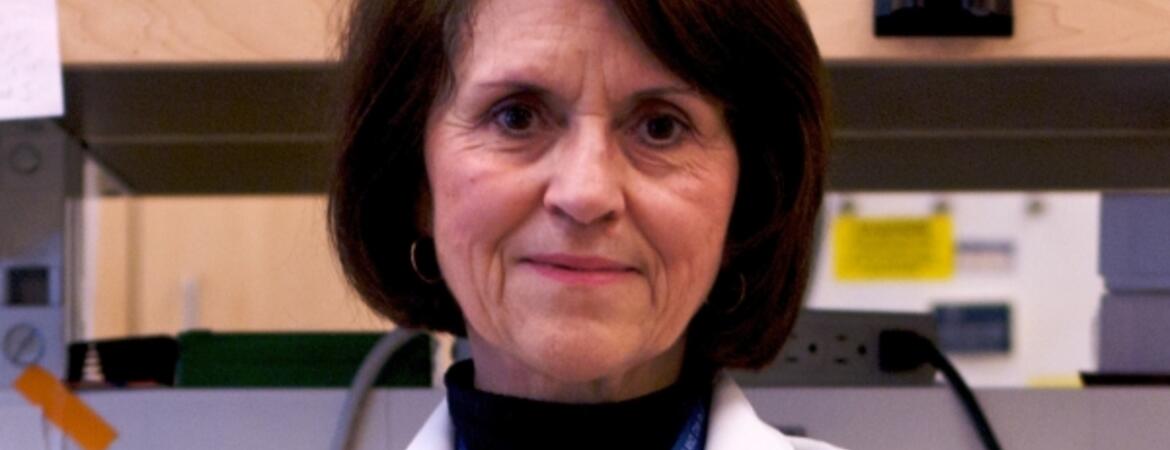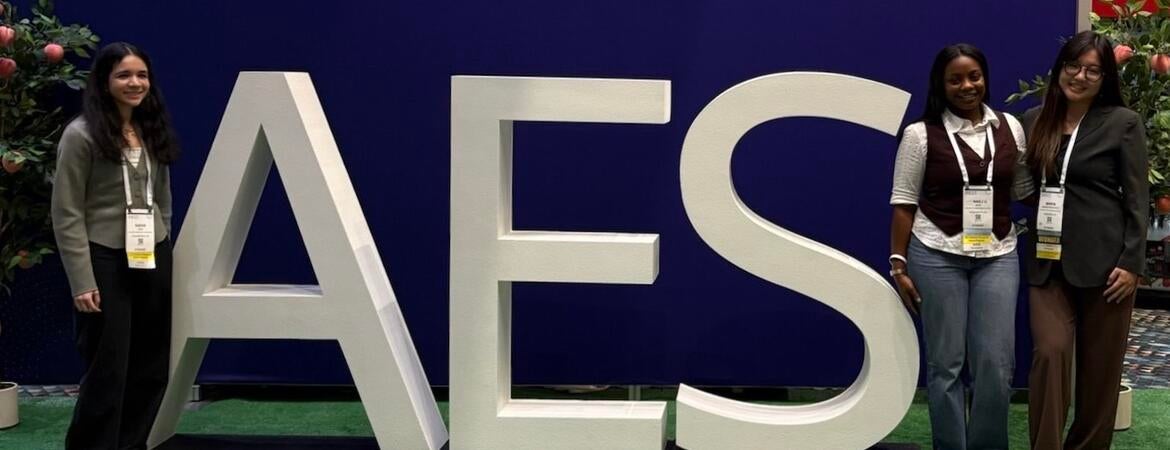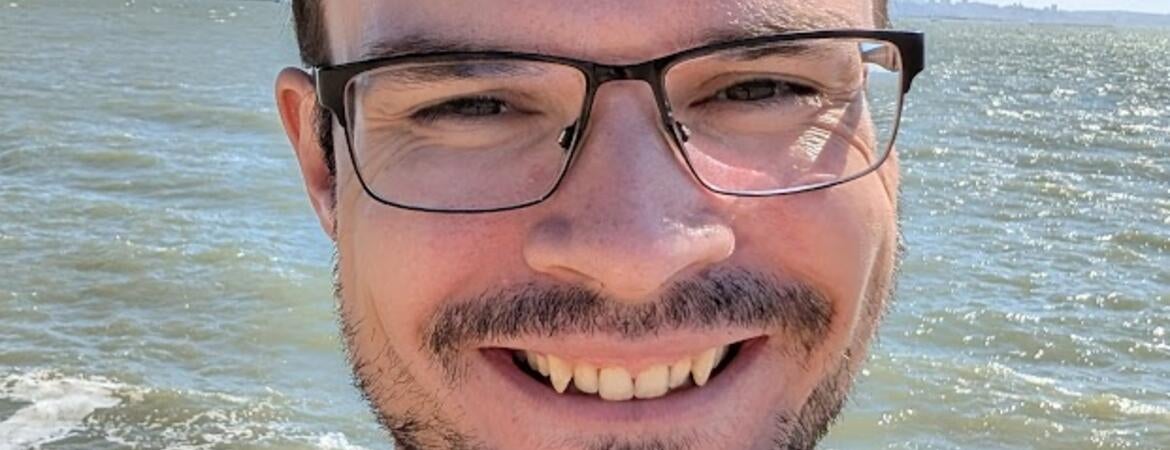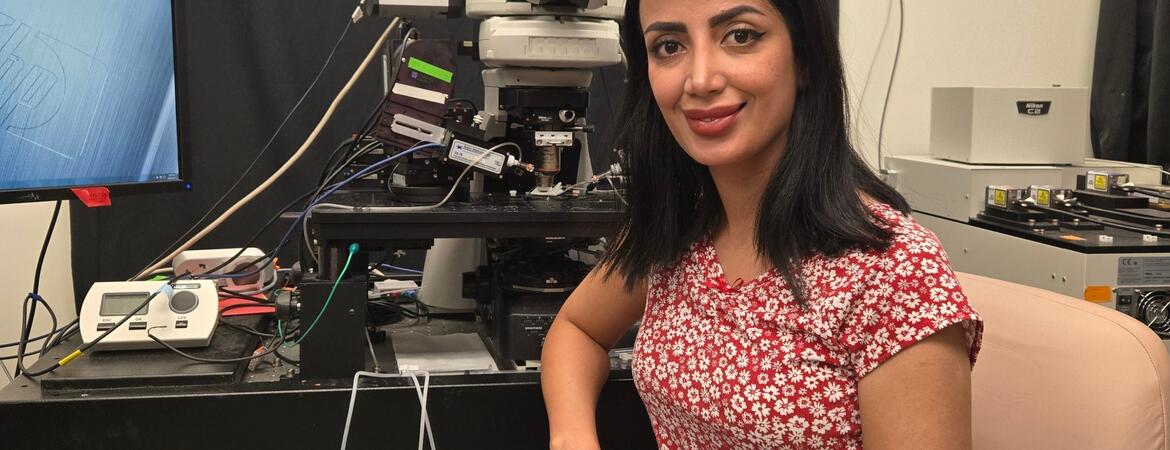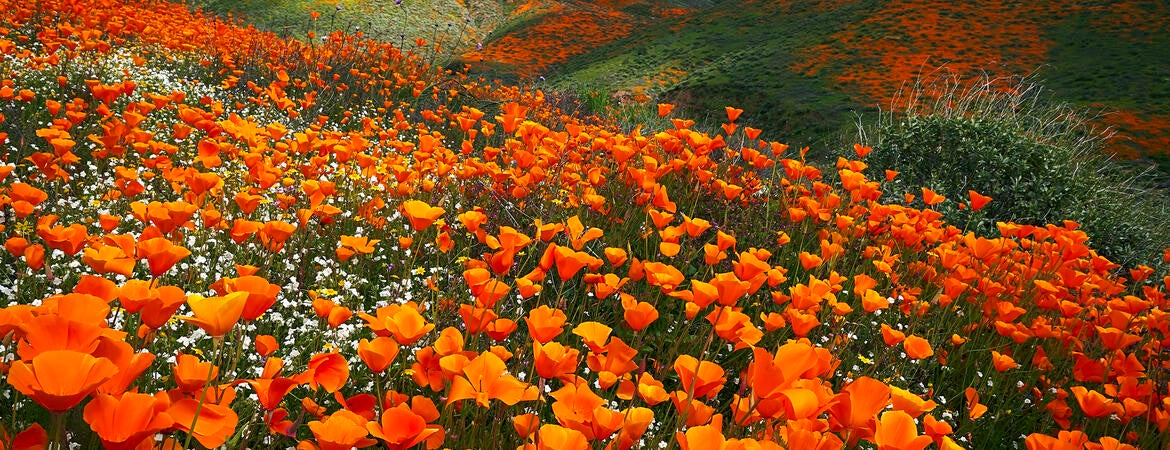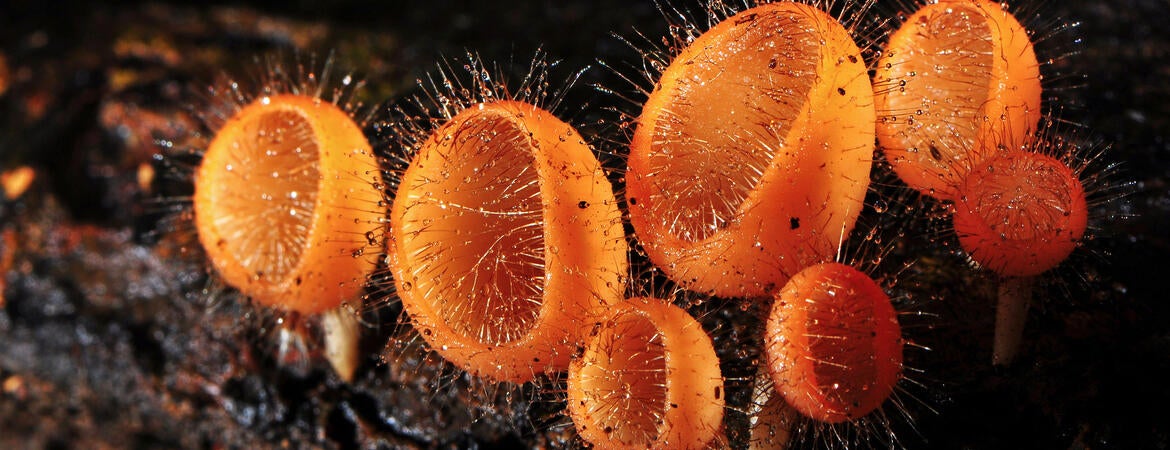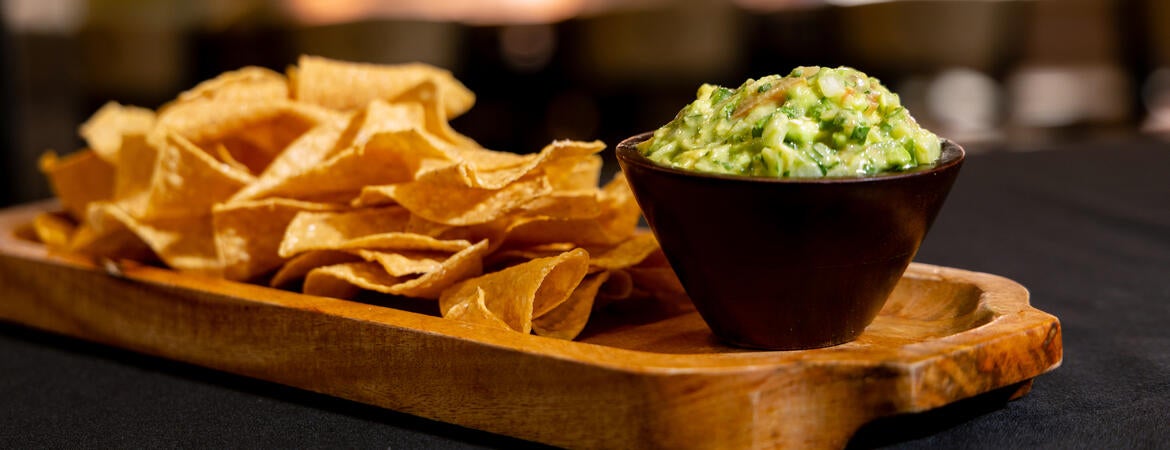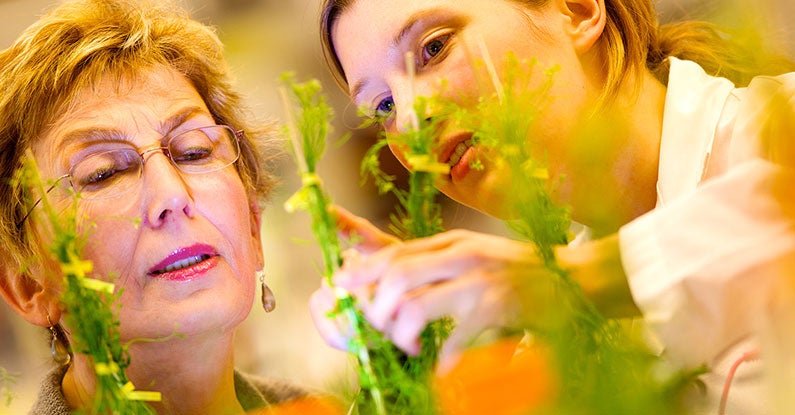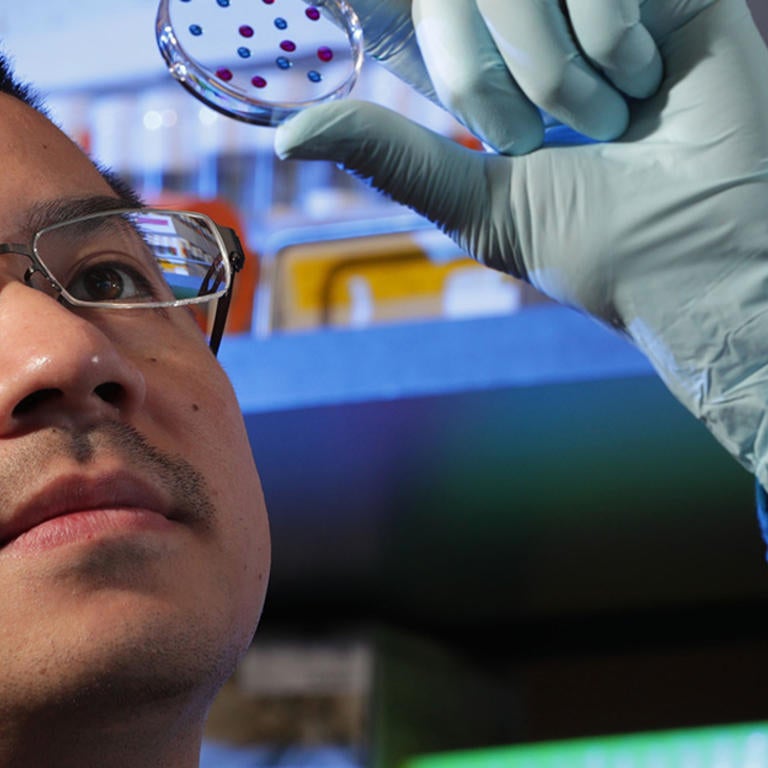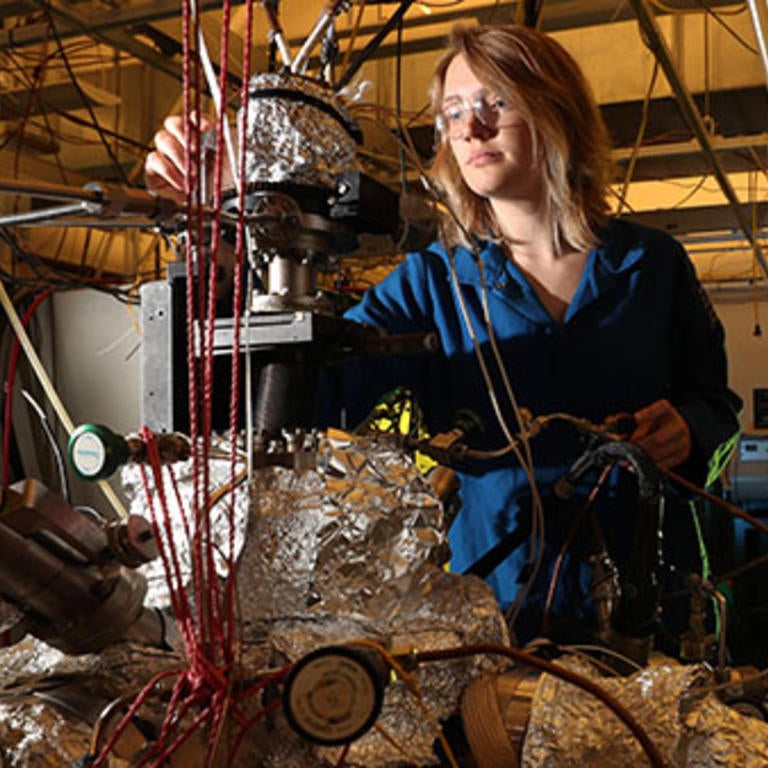Opportunities for Graduate Students Abound at CNAS
Graduate students looking to pursue an advanced degree through the College of Natural and Agricultural Sciences have an opportunity to work with and learn from some of the top minds in their fields.
Taking Advantage
CNAS is a unique and diverse learning environment. It crosses disciplines, providing chances for graduate students to tailor their learning experience and explore ideas that they have never dreamed of. If what you want isn't happening in your department or lab, it's happening down the hall or in the next building. For example:
- Professor Tom Perring in Entomology is creating a chemical duplicate of a moth's sex pheromone and figuring out how to spray it most effectively on date palms.
- Prof. John Baez in Mathematics is researching mind-bending topologies as two-tangle surfaces embedded in four-dimensional space.
These are just a few of the hundreds of research programs waiting for you here at UCR.
The Next Step
The CNAS Graduate Student Affairs Center provides assistance to both applicants and enrolled graduate students. The seven-member staff of GSAC supports all the departments and graduate programs in the college, with the exception of the Departments of Chemistry, Mathematics, and Physics & Astronomy, which have their own graduate advising staff. As a first step, visit the website of the appropriate graduate advising office:
Graduate Programs in Detail
To explore further, check out the links below to see the college's master's and doctoral degree offerings. Some are department based; others are interdisciplinary. Follow links to the faculty members' own laboratory pages to see what specific work they are doing and how that fits into your interests. Don't hesitate to email a professor if you have questions.
CNAS Headline News
